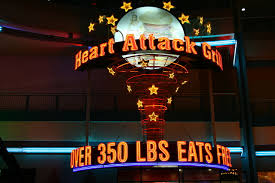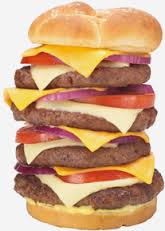It seems that every week someone discovers the next new best way to shed extra pounds. It usually sounds a little something like
“Scientists from Bangkok have just discovered a revolutionary way to melt away belly fat, increase lean mass, and make you look 15 decades younger! Order now to learn our secret and become a person that is better than you are now because you don’t fit disillusioned societal expectations which means you suck!”
And of course the discovery is totally true because you found it on a form of media and a random “doctor” said it is backed by super legitimate, clinically proven science. Just because someone looks the part and uses buzzwords that doesn’t mean anything, especially if it is on TV selling you something.
We can all relate to this scenario and know someone who has fallen prey to it. If all these radical, scientific break throughs were true than obesity would not still be a major health concern, right? So what gives?
Often these marketing ploys for weight loss or effortless cures to ailments target something simple, yet complicated enough that people don’t totally understand the whole story. And often these ploys disregard more obvious, more legitimate reasoning. Consider carbohydrates, for example. Carbs are often cast in a negative light using ill interpreted information and correlation = causation mentality. As a result, people draw conclusions and think that carbs are bad. WHICH THEY ARE NOT. And since grains have carbs then they are also bad. WHICH THEY ARE NOT. Make any low carb, paleo, inflammation, or hypersensitivity claim you want but I would like to point out the more obvious culprit of weight gain and general malaise. The fact of the matter is that as a society we move less, yet, are busier. We have much more stressful lives, eat nearly 500 calories too many each day, pay to workout while paying to not work outside. Oh, and we don’t even come close to the recommended servings of fruit and vegetables. As a result, obesity, which is hugely more factorial, is a major health concern. And what better way to make money by selling a solution? Which solution sounds like an easier sell?
Eat less carbs and you will have buns like a Greek God.
OR
Tell people to address the aforementioned lifestyle and environmental factors through behavior modification and lifestyle intervention practices and you can have a better quality of life for a longer period of time.
Restricting carbs sounds simple, and in reality it is. Yet it does not address one of the biggest issues at hand. Simply stated, some people do not eat a balanced, varied, and moderate diet in conjunction with an active lifestyle while managing stress in healthy ways.
Are you sick, sluggish, overweight, foggy, or moody because you ate a slice of bread? With the exception of medical issues, food allergies, or intolerances, I doubt it. The human body can withstand decades of drug abuse, suffer massive trauma and blood loss, die and then be brought back to life. What makes us think that a slice of bread will cause our arm to fall off? However, eating far too much of anything for a long time can cause problems. All these quick fix, fat burning tricks conveniently disregard societal influences, our impatience, and portion distortion while redirecting blame elsewhere. Instead of addressing the core of health problems and finding solutions we too often look for the easy way out. I have never heard a registered dietitian tell anyone to eat 12 serving of grains at one meal. Yet, overconsumption of this food group is not uncommon.
If we ate a balanced, varied, and moderate diet with an active lifestyle I am willing to bet that there would be far less health complications. This brings me to the main point. What do dietitians mean when we tell people to eat a balanced, varied, and moderate diet with an active lifestyle? Here is a clue, it is not a diet, it is a lifestyle.
Balance:
Balancing a diet is very easy; the only catch is you have to eat all the food groups. Not just pasta or burgers. Just to make sure we are all on the same page here, the food groups are:
Grain- Think outside the box of pasta and please eat 100% whole grains
Vegetables- Not french fries, ketchup, or veggie straws
Fruit- Real fruit, for the love of all, just eat the fruit in the original form
Protein- These is more than just red meat and chicken, maybe try vegetarian sources as well
Dairy- Not Muscle Milk
*Note: Oils are fats. They are not a food group, but are essential for life. Balance, variety, and moderation also apply to here.
Don’t tell me that you don’t like green things or any vegetables. Grow up! Do you really think that your taste buds are so specialized and unique that they make you hate all greens or vegetables? Stop being stubborn because you know what else is stubborn…diabetes and heart disease. And these diseases don’t care if by hurting you they are also hurting your family. Sure you may not like swiss chard but the chances are you may like another green, whole vegetables. Often times it is the preparation of the food that you may not like. I hate mushrooms on pizza, but I love them sautéed. In addition, if your tastes buds are unfamiliar with a particular food you will be less likely to like it. You have to try a new food 12-15 times before you really know if you don’t like it. I hated my first sip of beer, now it’s a different story.
Variety:
This means eating more than just one food belonging to a food group. There are more options in the grain group than Wonder Bread or angel hair pasta. Trust me, with all the culture and influences of the culinary world we can enjoy more than thin pasta and textureless bread. What about all the other types of whole grain bread, pasta, brown rice, wild rice, barley, bulgur, quinoa, corn, buckwheat, pita, tortilla, nan, cereals, granola, crackers, and millet, just to name a few. Each of these products have varying nutritional make-ups which is why you should eat a wide variety. If you only eat white rice you are only getting what white rice has to offer. If you only had one Teenage Mutant Ninja Turtle you lack the skills and weapons on the others. And as far as I (and science) am concerned there are no super foods or grains. No grain is super enough to do it all. In short, try something new and change it up often. Don’t be stubborn; keep an open mind.
Moderate:
The last, but certainly not the least important key to a healthy diet is moderation. According to the dictionary application on my laptop, moderate is defined as:
“the avoidance of excess or extremes, esp. in one’s behavior or political opinions : he urged the police to show moderation. See note at abstinence . • the action of making something less extreme, intense, or violent : the union’s approach was based on increased dialogue and the moderation of demands.”
Allow me to summarize. Stop eating so much. And trust me, I am not blaming just you. I am blaming all of us, even myself. I am never opposed to entering a sushi eating contests. But look around. I can super size everything from french fries to screen size. Houses have quadrupled in size while families have shrunk. We live in a “bigger is better” society, constantly bombarded by advertisements for food joins giving you more for less. For the most part, the foods advertised are loaded with salt, fat, and sugar in ridiculous portions.
Note** I am not saying that salt, sugar, or fat is bad in anyway. That is another issue. Please do not read this and think that I am telling you salt, fat, and sugar are bad, cause they are not. We just use them in inappropriate ways. A hammer is great for nailing and nailing related tasks. But it is probably bad at fishing. This does not mean a hammer is all bad.
Back to the point. Massive portions, cheap costs, constant advertisement, effortless accessibility, and a “bigger is better” mentality make overconsumption of highly palatable foods very easy. Immediate and massive gratification is at our fingertips and it seems totally normal to us.
Have you been to a burger place lately? A serving of pasta is a HALF CUP. Olive Garden serves 4 cups of pasta and 4 bread sticks with their dinner portion of spaghetti and meatballs. That is 12 servings of grain at one meal. The daily recommended intake for grains following a 2000 calorie diet is 6 serving. Do we see the issue here? So if you over consume to this degree regularly it makes sense that you will notice a difference if you cut it our of your diet. Or you could just ask a dietitian what you should be eating and listen. Or even better, places like Heart Attack Grill openly use gluttony to help drive business.

Note: I am not blaming any restaurant or food joint for our overconsumption. It is my job to regulate how and what I eat. It is their job to sell food.

I would no issue eating the Quadruple Bypass Burger, just not regularly.
Sometimes the solution is not sexy and not what we want to hear. Sometimes the solution sounds terrible, but the thing is, a quality solution fixes the problem. A poor solution only covers up the problem to be revisited later. Personally, I like problems to be fixed the first time. Maybe before people decide that they should cut out a food group or take a pill they should ask themselves, “What am I doing that could be outside of dietary recommendations?” Or, “What kind or relationship do I have with food?” And then they should talk to a professional. We are problem solvers, not problem hiders. Eat well. Be well. Live well.
Curried Orange Ginger Pasta. Serves 2
Ingredients:
1 cup cooked pasta
1 cup each, cubed ham (cooked), crumbled feta cheese, and coined carrots
1/2 cup sliced red onion, or whatever onion you want
1/4 tsp each smoked paprika, curry powder, black pepper, and ginger powder
salt to taste
1 orange
1 tbsp oil
Instructions:
Heat oil and spices in skillet on medium high heat. Once hot add the carrots and ham. Heat for 1-2 minutes then add the onions and heat until they start to soften. Now add the pasta, and juice from the orange. Continue heating for another minute or till everything is hot and evenly mixed. Remove from heat, plate, and add feta to each dish.


